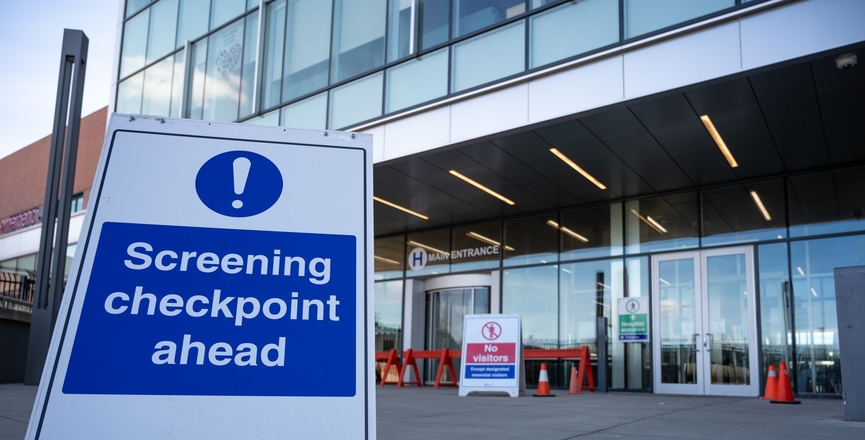Millions of people in the United States are losing their employment-based health insurance amidst the COVID-19 global pandemic — hit by the double blow of losing their job and losing affordable access to health care. Thank goodness we live in Canada — right?
Wrong. We as Canadians have long prided ourselves in providing universal access to health care and breaking down barriers in social inequities. We believe our health-care system leaves nobody behind. This is misguided.
The inconvenient truth is that in Canada, hundreds of thousands of people do not have access to health coverage as a result of their immigration status. Groups who find themselves uninsured include some temporary foreign workers and international students, non-status individuals, newly landed permanent residents and those with pending humanitarian and compassionate claims, among many others.
Beyond these constructed divisions of our immigration system, the uninsured walk among us. They are an integral part of our communities and our workplaces. The pandemic has shown that in many cases they play a critical role in essential front-line work, including health care.
But when in need of health care themselves, they are slapped with exorbitant out-of-pocket fees or worse, turned away. Our state structures offer inclusion when it comes to paying taxes and working precarious jobs; yet exclusion is normalized when it comes to the right to health.
We must stop and ask why this is the case. When health and illness do not discriminate based on insurance status, why does our health care?
Health-care providers and migrant organizations call for action
On Thursday, May 21, an open letter written by the Healthcare for All National Coalition — and endorsed by more than 200 health, migrant and civil society organizations — was sent to the federal government and provincial leaders, calling for national leadership and coordination in ensuring access to healthcare for all.
Among the signatories were the Canadian Medical Association, Canadian Federation of Nurses Unions, Canadian Pediatric Society, Migrant Rights Network, Canadian Civil Liberties Association and the Canadian Labour Congress. The coalition and its supporters are demanding comprehensive and permanent health-care coverage for all people living in Canada, regardless of immigration status, as a human rights and public health measure.
Early steps lack coordination, consistency and sustainability
In the wake of the pandemic, the spotlight has fallen on ensuring timely access to health care to protect our communities. Advocacy efforts have led some provincial governments to change course.
Some provinces have moved to providing coverage for COVID-19 related services only, while others have extended coverage for all health-care services, but limited this to the duration of the pandemic.
There are serious flaws in both these approaches.
First, implementation of policies across the country have been inconsistent. While some provinces have stepped forward, others have been eerily silent. In addressing a national problem unbounded by provincial borders, we need a coordinated approach in ensuring that health care is truly universal.
Second, the implementation of policy changes has been incomplete. We continue to hear stories of individuals without health insurance being charged for or outright denied access to care — even in provinces where new policies support universal access during the pandemic. This is simply unacceptable.
Third, policy changes have lacked comprehensiveness. The distinction between COVID-19 related services and other services is both artificial and harmful, especially given the significant variability in how COVID-19 presents. This false dichotomy may lead to missed testing and treatment, and increased community transmission.
Moreover, the pandemic has forced many with other health conditions to avoid or delay seeking care; we are only beginning to understand the indirect consequences of COVID-19 on population health.
Fourth, policy changes have been short-sighted. Our governments are failing to recognize that the pandemic has only amplified chronically pre-existing cracks in our health-care system. Over the years, health-care professionals, international human rights bodies and community organizations have made it clear: denying health care on the basis of immigration status is a human rights violation and threat to public health.
Ensuring permanent access to health care for migrants improves health and safety for all communities in Canada; it leads to reduced health-care costs and improved health outcomes.
An opportunity for consistent and sustainable policy change
While we have rightly acknowledged this pandemic as a crisis, we must also see the opportunity for sustainable policy change. We have an opportunity as a country to recognize and remediate gaps woven into our health-care system for decades.
We are at a critical juncture. It is time for a paradigm shift for our society: if there was ever a time for action around recognizing health as a universal human right and creating systemic changes to ensure consistent and sustainable access to health care for all, it is now.
Hisham Shokr is an incoming medical student at Western University, Nisha Kansal is an incoming family medicine resident physician at McMaster University, Arnav Agarwal is an internal medicine resident physician at the University of Toronto. All three are members of OHIP For All, and the National Healthcare For All Coalition.
Image: Graham Ruttan/Unsplash




